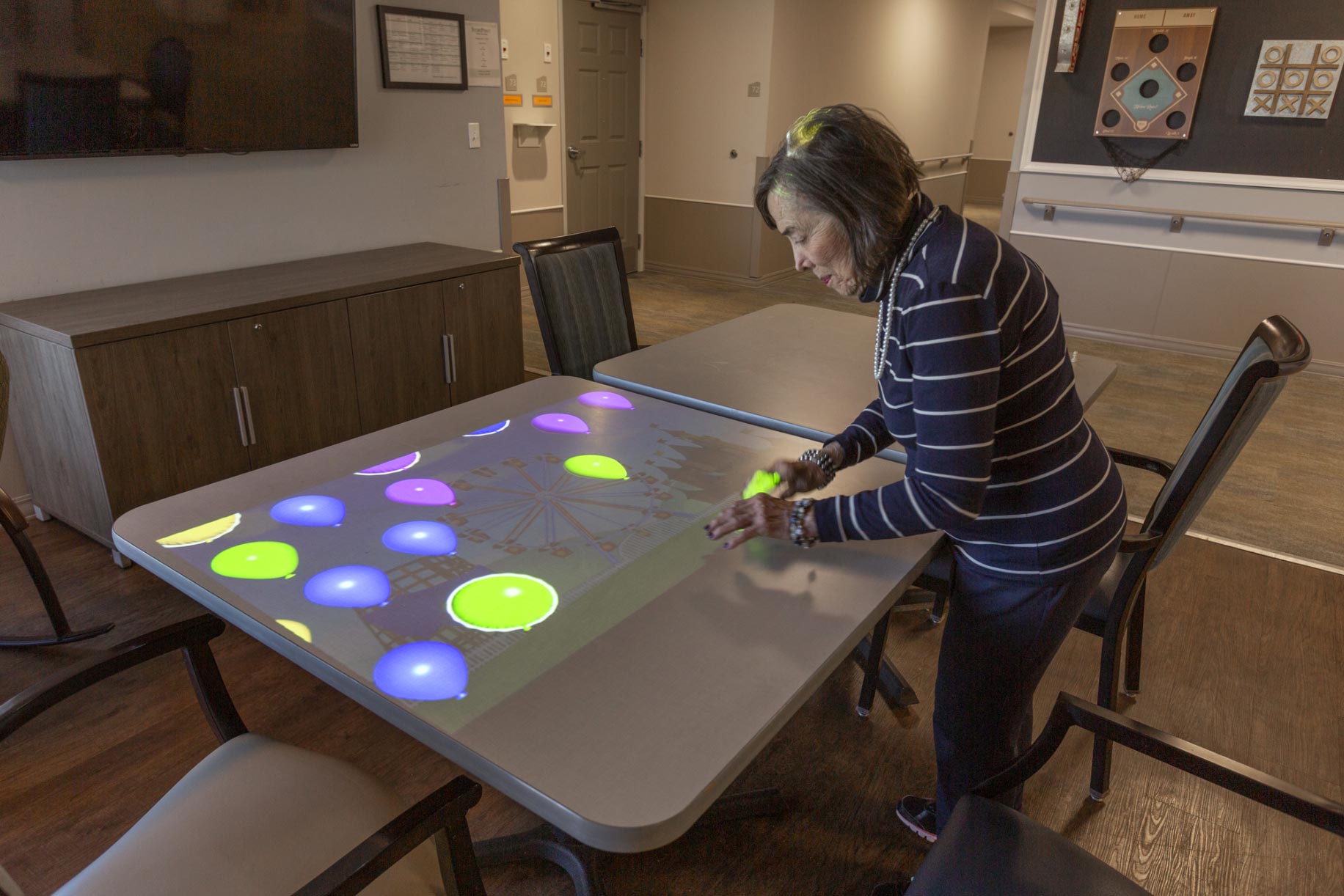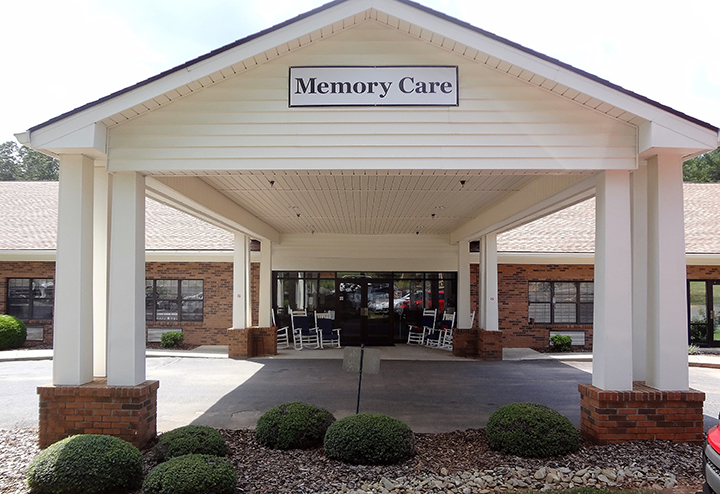Caring Groups Giving Relied On Alzheimers Care Charlotte Options
Caring Groups Giving Relied On Alzheimers Care Charlotte Options
Blog Article
Thoughtful Alzheimer's Care for Your Loved Ones
The complexity of Alzheimer's disease requires a specific technique to care that stresses concern and understanding. Identifying the psychological and emotional requirements of individuals affected by this condition is paramount in enhancing their lifestyle. Caregivers play a crucial role in creating a setting that promotes dignity and respect, employing approaches that advertise psychological connection and reduce anxiety. As we discover the numerous methods and methods that can transform caregiving into a more thoughtful experience, it comes to be clear that the journey is as much about the caretaker as it is concerning the private with Alzheimer's.
Comprehending Alzheimer's Disease
Alzheimer's condition is a progressive neurodegenerative problem that mainly affects cognitive function, leading to amnesia, impaired thinking, and changes in habits. It is the most typical form of dementia, making up 60-80% of all situations. The condition usually manifests in individuals matured 65 and older, although early-onset Alzheimer's can take place in younger people.
The pathophysiology of Alzheimer's entails the accumulation of amyloid plaques and neurofibrillary tangles in the brain, leading to neuronal deterioration and synaptic loss. These adjustments interfere with communication between brain cells, considerably harming cognitive abilities and daily functioning. Early signs might consist of difficulty keeping in mind current occasions and challenges in problem-solving, which can intensify to disorientation and problem with language.
As the illness breakthroughs, people might exhibit profound memory shortages, confusion regarding time and location, and difficulty acknowledging liked ones. Behavioral modifications, including anxiety, frustration, and withdrawal, might additionally happen. Comprehending the scientific progression of Alzheimer's is critical for caretakers and doctor, as it notifies reliable management strategies and interventions customized to the needs of individuals impacted by this devastating problem.
The Importance of Compassionate Care
Caring treatment is important in supporting people with Alzheimer's condition, as it substantially enhances their top quality of life. This strategy focuses on the emotional and mental well-being of patients, fostering an environment that advertises respect, dignity, and understanding. People with Alzheimer's typically experience confusion, anxiousness, and stress, which can be alleviated with thoughtful interactions.
Compassion in caregiving not just assists in identifying the distinct demands of each individual yet also enhances the caregiver-patient partnership. When caregivers approach their functions with concern, they create a risk-free room where patients feel valued and recognized, which can reduce behavioral difficulties connected with the disease. This helpful setting urges better communication and involvement, assisting in an extra effective reaction to the care supplied.
In addition, compassionate care extends beyond the individual; it additionally encompasses support for families. Caregivers who practice empathy are a lot more outfitted to resolve the psychological burden faced by liked ones, supplying peace of mind and support via a tough trip. Inevitably, the relevance of thoughtful treatment depends on its capability to transform the caregiving experience, bring about enhanced outcomes for both individuals with Alzheimer's and their families.
Practical Caregiving Strategies
Effective caregiving for people with Alzheimer's condition calls for sensible approaches that resolve the special difficulties presented by the condition. One of the leading approaches is developing a regular everyday routine, which can provide structure and knowledge, minimizing stress and anxiety for both the caregiver and the individual. Caregivers need to additionally simplify tasks by damaging them down right into smaller, convenient actions, thus enhancing the person's sense of success and lessening disappointment.
Communication is an additional important aspect; caretakers ought to use clear, basic language and maintain eye contact to promote understanding. Utilizing aesthetic cues, such as tags or photos, can further help comprehension and navigating in the environment.
Safety and security is critical. Adjusting the home to eliminate dangers-- such as securing carpets or installing grab bars-- can aid protect against crashes. In addition, caregivers need to encourage freedom by allowing individuals to participate in familiar tasks, which can strengthen self-confidence and promote wellness.
Psychological Assistance Methods
Psychological health is an important part of take care of individuals with Alzheimer's condition, as it directly affects their top quality of life. Alzheimers Care Charlotte. Offering psychological assistance strategies can considerably improve their day-to-day experiences and foster a sense of safety and belonging
One reliable approach is active listening, which entails offering complete attention to the individual, acknowledging their feelings, and reacting with compassion. This strategy aids the individual feel valued and understood, minimizing sensations of seclusion or stress. Additionally, utilizing validation therapy can be useful; instead of imp source remedying mistaken beliefs, caretakers can attest the individual's feelings and experiences, advertising a soothing atmosphere.
Engaging in reminiscence therapy is another powerful method, allowing individuals to share feelings, memories, and tales related to their past. This not just promotes cognitive function yet additionally reinforces psychological connections. Incorporating familiar songs or art can also evoke positive feelings and trigger cheerful interactions.
Additionally, guaranteeing normal physical touch, such as holding hands or mild hugs, can provide comfort and confidence, reinforcing psychological bonds. These methods, when consistently used, can create a nurturing environment that sustains the emotional health of individuals with Alzheimer's, improving their general wellness.
Creating a Supportive Setting

First of all, think about the physical design of the living room. Clutter-free areas, Visit Your URL familiar furniture plans, and distinct pathways can reduce confusion and promote movement. Utilizing soothing colors and ample lights can better enhance the ambience, making it more welcoming and less frightening.
Secondly, consistency is crucial. Preserving a predictable everyday regimen aids individuals with Alzheimer's feel more protected. Acquainted activities, regular meal times, and set up social communications can substantially reduce stress and anxiety and disorientation.
Additionally, sensory components play a vital duty. Including familiar scents, music, and tactile items can stimulate favorable memories and stimulate engagement. Customizing the space with valued pictures and meaningful things can also promote a sense of identification.
Conclusion
Caring Alzheimer's care dramatically boosts the quality of life for people influenced by this progressive condition. By focusing on psychological wellness and executing reliable caregiving approaches, caregivers can cultivate why not check here an environment that advertises dignity and belonging. Methods such as active listening and developing constant routines offer to alleviate anxiety while enhancing the caregiver-patient connection. Ultimately, this method not only gives essential comfort and support yet additionally equips individuals to browse the complexities of Alzheimer's with self-respect and elegance.
As we explore the different strategies and strategies that can transform caregiving into a more caring experience, it comes to be clear that the trip is as much about the caretaker as it is regarding the individual with Alzheimer's.

Compassionate care is necessary in sustaining people with Alzheimer's condition, as it considerably boosts their quality of life - Alzheimers Care Charlotte. Ultimately, the relevance of compassionate treatment lies in its capability to transform the caregiving experience, leading to boosted outcomes for both individuals with Alzheimer's and their households
Thoughtful Alzheimer's care dramatically improves the high quality of life for individuals influenced by this dynamic disease.
Report this page